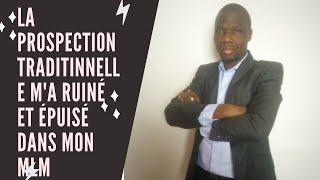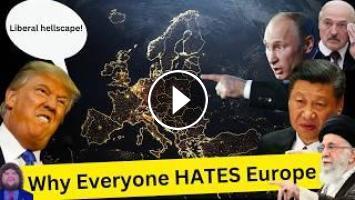Europe is one of the most peaceful, wealthy, and democratic regions on Earth—yet it irritates leaders from Moscow to Beijing, and even sparks mockery in parts of Washington. Why? In this video, we explore why Europe bothers the world, and why countries like Russia, China, and MAGA‑aligned America love to criticize it, even as they rely on it.
When we talk about Europe, we don’t just mean the European Union. We include the wider democratic European space: the UK, Norway, Switzerland, Iceland, and other Schengen and EFTA countries. Despite Brexit, the UK still shares the same economic orbit, strategic concerns, and democratic values. Together, these nations make up the largest pool of wealthy consumers on the planet, a massive economy, and a quiet but powerful political force.
Europe’s power is unique.
It doesn’t dominate through military invasions or regime changes like old empires. Instead, Europe influences the world with rules, standards, and values. Its regulations on trade, privacy, environment, and safety force US, Chinese, and global companies to adapt if they want access to Europe’s lucrative markets. Governments seeking deals with Europe face conditions tied to human rights, democracy, and environmental protections, and that makes authoritarian leaders bristle.
Countries like Russia and China see Europe as a threat—not just because Europe is rapidly rebuilding its military—but because it proves a free and democratic society can be wealthy and stable. For Vladimir Putin, Europe undermines the entire “strong hand” narrative he sells to his people. For Beijing, Europe represents an ideological and economic counterweight. In 2024, Europe imported over €530 billion in Chinese goods, making it China’s largest single export market. Nearly 20% of Chinese exports go to Europe, while only 8% of European exports go to China. This imbalance gives Europe a strategic leverage card—one that China can’t easily ignore.
Even the United States, Europe’s closest ally, has grown more openly critical—especially under MAGA politics. Trump and JD Vance have called Europe a NATO freeloader and accused it of decline. But the facts tell a different story. Europe now fields:
1.7 million active‑duty troops (more than the U.S.)
Over 4,300 tanks and 1,500 warships
Europe’s air forces rank second globally, with over 5,000 aircraft
Defense spending is surging. Poland spends 4.1% of GDP, the Baltics and Greece surpass U.S. levels, and Germany and France are rapidly catching up. Across the EU and UK, almost all NATO members now meet or exceed the 2% target, and some outspend the U.S. per capita.
And Europe’s role in Ukraine? Far from freeloading:
Europe has delivered more total support to Ukraine than the U.S. when counting military, humanitarian, and refugee aid.
Millions of Ukrainian refugees live in Europe with full access to housing, healthcare, and education.
Frontline states like Poland, the Baltics, and Finland have emptied stockpiles and built serious defenses.
So why do so many countries “hate” Europe?
Because Europe’s model works. It thrives on rules, democracy, human rights, and quiet power. Its GDPR and consumer protections annoy U.S. tech billionaires, and its democratic standards frustrate Chinese and Russian oligarchs—but the world cannot ignore Europe. Access to 500+ million wealthy consumers comes with conditions.
This video dives into:
Why Russia and China fear Europe’s success
MAGA’s myths about NATO “freeloading”
Europe’s military and economic leverage
Why quiet power can be more disruptive than force
#europe #eu #uk
When we talk about Europe, we don’t just mean the European Union. We include the wider democratic European space: the UK, Norway, Switzerland, Iceland, and other Schengen and EFTA countries. Despite Brexit, the UK still shares the same economic orbit, strategic concerns, and democratic values. Together, these nations make up the largest pool of wealthy consumers on the planet, a massive economy, and a quiet but powerful political force.
Europe’s power is unique.
It doesn’t dominate through military invasions or regime changes like old empires. Instead, Europe influences the world with rules, standards, and values. Its regulations on trade, privacy, environment, and safety force US, Chinese, and global companies to adapt if they want access to Europe’s lucrative markets. Governments seeking deals with Europe face conditions tied to human rights, democracy, and environmental protections, and that makes authoritarian leaders bristle.
Countries like Russia and China see Europe as a threat—not just because Europe is rapidly rebuilding its military—but because it proves a free and democratic society can be wealthy and stable. For Vladimir Putin, Europe undermines the entire “strong hand” narrative he sells to his people. For Beijing, Europe represents an ideological and economic counterweight. In 2024, Europe imported over €530 billion in Chinese goods, making it China’s largest single export market. Nearly 20% of Chinese exports go to Europe, while only 8% of European exports go to China. This imbalance gives Europe a strategic leverage card—one that China can’t easily ignore.
Even the United States, Europe’s closest ally, has grown more openly critical—especially under MAGA politics. Trump and JD Vance have called Europe a NATO freeloader and accused it of decline. But the facts tell a different story. Europe now fields:
1.7 million active‑duty troops (more than the U.S.)
Over 4,300 tanks and 1,500 warships
Europe’s air forces rank second globally, with over 5,000 aircraft
Defense spending is surging. Poland spends 4.1% of GDP, the Baltics and Greece surpass U.S. levels, and Germany and France are rapidly catching up. Across the EU and UK, almost all NATO members now meet or exceed the 2% target, and some outspend the U.S. per capita.
And Europe’s role in Ukraine? Far from freeloading:
Europe has delivered more total support to Ukraine than the U.S. when counting military, humanitarian, and refugee aid.
Millions of Ukrainian refugees live in Europe with full access to housing, healthcare, and education.
Frontline states like Poland, the Baltics, and Finland have emptied stockpiles and built serious defenses.
So why do so many countries “hate” Europe?
Because Europe’s model works. It thrives on rules, democracy, human rights, and quiet power. Its GDPR and consumer protections annoy U.S. tech billionaires, and its democratic standards frustrate Chinese and Russian oligarchs—but the world cannot ignore Europe. Access to 500+ million wealthy consumers comes with conditions.
This video dives into:
Why Russia and China fear Europe’s success
MAGA’s myths about NATO “freeloading”
Europe’s military and economic leverage
Why quiet power can be more disruptive than force
#europe #eu #uk
- Catégories
- E commerce Divers
- Mots-clés
- europe, eu, britain














Commentaires